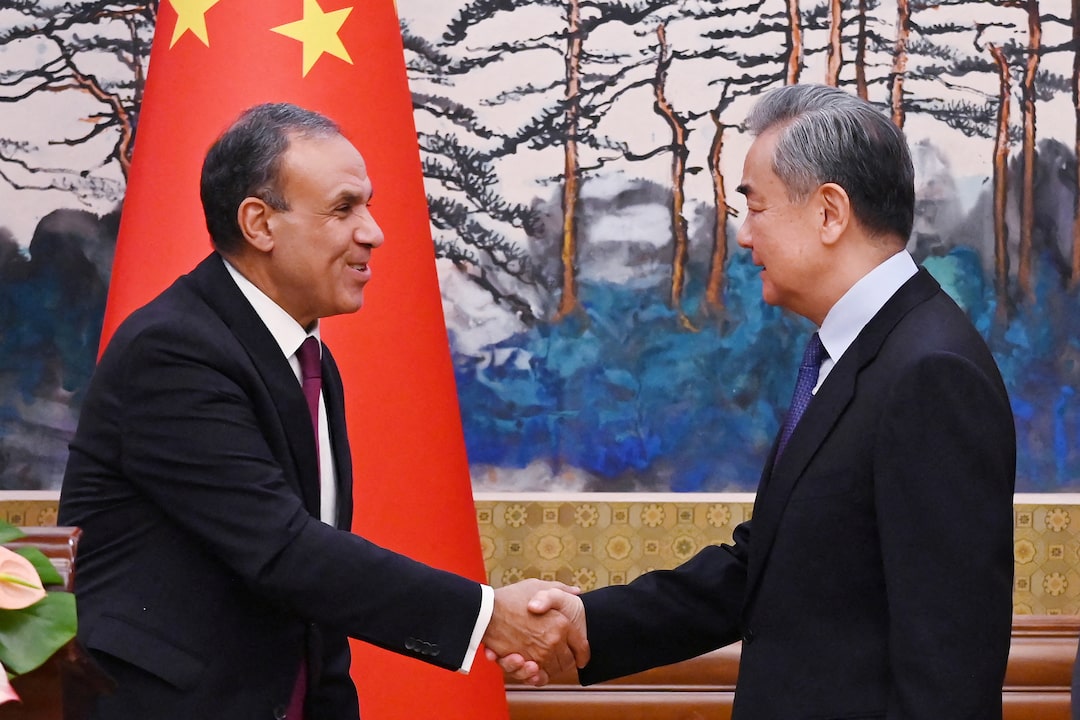China Denies Trading Missiles for Oil with Iran
Contrary to circulating rumors, China vehemently denies the secret dispatch of surface-to-air missile batteries to Iran to supplement their dwindling missile reserves, intended to be paid for with oil consignments. This rebuttal surfaced following news allegations stating that Iran has received a shipment of Chinese surface-to-air missile batteries post the recent ceasefire with Israel.
These reports suggested that Iran’s payment method for the aforementioned missile equipment was through oil shipments they were sending to China. The narrative further stated that Arab nations were cognizant of Tehran’s endeavors to fortify its air defense mechanism.
However, China rebuffed these accusations outrightly, asserting their firm policy of ‘no export of weapons to nations actively involved in conflict’. On top of this, they emphasized that they have rigorous regulations in place for the control of items that could be used for either civilian or military purposes.
Taking a strong stand against the wide distribution of mass-destruction weaponry and relevant systems, China reiterated how they ‘remain committed to strengthening their capability to enforce non-proliferation’. They clearly communicated this stance as an integral part of their current defence and foreign policy.
China’s major role as the predominant importer of Iranian oil was highlighted, and its close partnership with Iran was brought into focus. Reports suggested that Iran had placed orders with China for substantial amounts of materials that could potentially be used in the manufacturing of ballistic missiles.
In the face of recent conflicts, China made a conscious decision to keep a balance from Tehran. Implementing this tactical move allowed them to abstain from openly taking Iran’s side during these tumultuous times, leading political analysts to accentuate the limited regional influence of China.
Despite its condemnation of hostile actions taken against Iran, China placed a crucial emphasis on maintaining its influence in upholding a sense of balance and lasting stability within the Middle East. As an international participant, China maintained its interest in promoting long-term security and stability in the area.
Experts in the field argue that relationships with Arab nations, including such as Saudi Arabia and the United Arab Emirates, carry more weight to China than its alliance with Iran. These nuanced geopolitical priorities show a deeper understanding of China’s interests within the region.
Strained by the potential of a more extensive conflict unfolding, China does not intend to risk its steady flow of oil imports from these crucial Arab nations. This insight reveals that, for China, safeguarding its energy resources takes precedence over aligning with particular nations during international disputes.
While China’s partnership with Iran is of significant importance, its need to prioritize relations with oil-rich Arab nations showcases a calculated approach to international relations. In other words, these events spotlight the measured steps China is willing to take in order to ensure the security and continuity of its energy supply.
These unfolding circumstances offer a unique view into the mechanics of geopolitics and diplomacy, shedding light on how nations navigate sensitive alliances amidst emergent international conflicts. It also brings to light China’s ability to adapt their strategies based on changing geopolitical landscapes and their broader international agenda.
While the reports of missile trade point to an intricate diplomatic plot, China’s denial reinforces their commitment to peace and non-proliferation. This instance underscores China’s pragmatic approach in its international dealings; in the face of controversy, China chooses diplomacy and stability over conflict escalation.
China’s political acumen and strategic decision-making revolve around two key assets – peacekeeping and upholding international agreements. By denying these alleged weapons transfers, China reasserts its commitment to these principles while highlighting the importance it places on maintaining stable relations with its middle eastern allies.
Navigating the delicate dynamics of international relationships, especially in conflict-riddled regions, demonstrates the careful manoeuvring by China. This narrative showcases China’s adept diplomacy, revolving around intricate balancing between its interests and its commitment to peace and stability.
The Chinese government, with its thought-out diplomatic strategies and commitment to peace in tumultuous regions, has made its priorities clear. The denial of these allegations underscores their focus on maintaining their import relations over supporting conflict, further strengthening their position on the global stage.
In summary, while the rumors suggested China making a strategic play by moving missile batteries to Iran in exchange for oil shipments, the Chinese government categorically dismissed them. At a time where there is a critical need for stability and peace in the world, such rumors may have far-reaching ramifications, and hence, nations like China prioritize clear and transparent communication to avoid misinterpretations and misconceptions.

